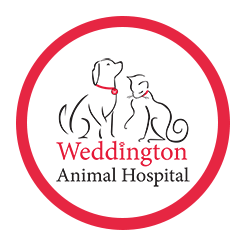Preparing for your puppy
With the exciting prospect of a new year, many families find themselves welcoming a new family member or considering adopting a puppy. A new puppy in the home can be a very exciting opportunity that can come with new experiences and lots of joy. It is important to know what this process entails and how to prepare. These tips will help you set your new puppy up for success from the very start of their life with you.
Welcome home
The first 48 hours after bringing your puppy home can be especially challenging. Your new family member has been taken away from everything they have known in their life so far, and this can be stressful for them. Oftentimes, this involves traveling in a car or on a plane with new scents and noises they have never experienced before. It is important to be patient and establish a routine right away to make this transition as easy as possible. Offering them the diet they are used to, even if you are planning on transitioning them to a different diet, can make their first week with you easier for them while they adjust. Ensuring they have access to food and water, a comfortable space to sleep when they arrive at your home is crucial to set them up for success. It is important to be patient with them while they get used to their new surroundings.
Puppy-proofing
Puppies are like toddlers, except fifty times faster and with sharper teeth. Supervising your puppy and predicting possible issues before they happen is key. The ideal set up is a crate and an X-pen with puppy friendly toys that do not have strings or tags they can ingest. Do not allow your puppy in areas where there are electrical cords, medications, plants easily within access. It is important to place these unsafe objects well out of reach. When your puppy is outside, keep them on a leash and try to keep them from eating mulch or other foreign material as much as possible. If your puppy is prone to chewing on shoes, hands or other non-puppy friendly “toys”, you can redirect them by saying “no” and offering them a puppy safe toy instead.
Puppy’s first vet visit
When you first get your puppy, it is important to get them checked out by your veterinarian. During your puppy’s development, there are checkpoints to ensure they are receiving vaccinations and the appropriate care they need to develop and grow into adulthood safely. Your veterinarian will recommend specific vaccinations based on your puppies age and lifestyle. The most important vaccination for your puppy is the distemper/parvo vaccination. Parvovirus is a virus that can live in the soil for several months and can cause fatal vomiting and diarrhea in an unvaccinated pet. Until your puppy is fully vaccinated by a veterinarian (typically around 4 months of age), it is recommended to avoid high traffic places such as dog parks, boarding, grooming facilities, and pet stores. Your veterinarian will likely check fecal samples and recommend deworming for your puppy, as parasites are extremely common in puppies and some can even be contagious to people. It is also important to start your puppy on medication to protect them against heartworms, fleas, and ticks. These medications can typically be started at or around 8 weeks of age. Your veterinarian is a very rewarding resource for you and your growing puppy, and can help guide you on diet, behavior and other aspects of puppyhood.
Socializing and creating a well adjusted puppy
Exposing your puppy to as much as possible while keeping them safe is very important to help them be well adjusted as an adult. Touching your puppy everywhere, especially their feet, ears, and face and rewarding them can help them later in life for things such as grooming or nail trims. The sounds of clippers, thunderstorms, and fireworks can be simulated online and can be rewarded with positivity and rewards to prevent fear later. Socialization is extremely important for your puppy, especially between 8-20 weeks. Introducing them to children, other people, cats and other dogs that are fully vaccinated while they are young can help ensure they are well adjusted adults.
It is also important to allow your puppy independent time and encourage them to settle in the crate. If your puppy is constantly with you or stimulated/being played with around the clock, it may be difficult for them later if they are in a situation where you are not able to be with them and can encourage or create separation anxiety. Puppy training classes can be a very helpful resource to aid in socialization and basic commands after your puppy is fully vaccinated.
Summary
Puppyhood is an exciting time full of new experiences. While it can take a lot of time, effort and energy to raise a healthy, well adjusted puppy, they are an incredible asset to have and offer unconditional love and so many other benefits. It is important to do your research and find a good fit for your family. For any specific questions about your puppy or to schedule an appointment, we recommend contacting your veterinarian. To contact us at Weddington Animal Hospital, please call us at 704-847-8466 or email us at wah@wahcares.com.

